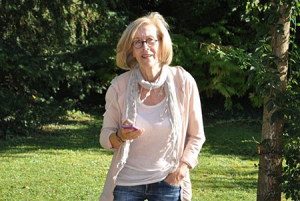Gallery
All Pictures (15)Biography
Dagmar Hirtz was born in Aachen on 29 May 1941. After graduating from high school, she initially began studying musicology in Munich, but dropped out. She got a job in a film laboratory and came to film editing this way. After gaining her first experience as an assistant to the renowned editor Carl Otto Bartning, Hirtz was hired in 1964 to edit the Kurt Hoffmann film "Das Haus in der Karpfengasse" ("The House in Karp Lane", 1965), immediately followed by the Hoffmann films "Dr. med. Hiob Prätorius" (1965) and "Hokuspokus oder: Wie lasse ich meinen Mann verschwinden...?" ("Hocuspocus", 1966), for which she also acted as assistant director.
With the Hoffmann films, Hirtz, who never received formal editor training, established herself as an accomplished editor. "I grew up listening to family music," Hirtz said in an interview in 2006, "perhaps it is this early musical experience that shaped me for my later profession. Because editing films always has to do with a sense of rhythm."
For Johannes Schaaf, she edited "Tattoo" (1967), which dealt with the generation conflict at the time of the beginning of the student revolt, and the Joseph Roth film adaptation "Trotta" (1971). For this film she was awarded the German Film Prize for the first time. In the following years, she worked with a number of other renowned directors, such as Veit Relin (the anti-clerical "Pfarrhauskomödie", 1972), Vojtěch Jasný (the Böll adaptation "Ansichten eines Clowns"/"The Clown", 1975) and Alf Brustellin and Bernhard Sinkel (the multiple award-winning sister story "Der Mädchenkrieg"/"Maiden's War", 1977).
She had a particularly close collaboration with Maximilian Schell, for whom she edited five films between 1970 and 1984, including "Der Richter und sein Henker" ("End of the Game", 1975), for which she won her second German Film Award, "Geschichten aus dem Wienerwald" ("Tales from the Vienna Woods", 1979) and "Marlene" (1984). Margarethe von Trotta hired Hirtz for "Die bleierne Zeit" ("Marianne & Juliane", 1981), "Heller Wahn" ("Sheer Madness", 1983) and "Rosa Luxemburg" (1986).
After Hirtz had also gained experience as an assistant to several directors, she made her own directorial debut in 1984: "Unerreichbare Nähe" ("Final Call", 1984, also produced, edited and written by Hirtz) screened at several international festivals , among them Chicago and Montréal and received positive reviews. Nevertheless, it remained her only directorial work for the next ten years.
She was awarded the German Film Prize for the third time for editing Klaus Maria Brandauer's "Georg Elser - Einer aus Deutschland" ("Seven Minutes", 1989). Other important works in her career include Loriot's "Ödipussi" (1988), Peter Sehr's "Das serbische Mädchen" (1990) and Volker Schlöndorff's "Homo Faber" (DE/FR/GR 1991). With the love story "Moondance" (DE/IR/GB 1994), set in Ireland, she directed her second feature film. In 1996 she was honoured at the Munich Film Festival with the Film Prize of the City of Munich for her lifetime achievement. The following year Jürgen Flimm's "Through Roses" (1997) was released. It was the last film that Dagmar Hirtz edited.
She continued to work as a director of television films over the next 15 years. These ranged from the lesbian love story "Die Konkurrentin" (1997) to the multiple award-winning modern fairy tale adaptation "Küss mich, Frosch" (2000) to the mother-daughter drama "Sie ist meine Mutter" (2006). The journalistic thriller "Ich wollte nicht töten" (2006) was awarded the Hamburg Producer Prize at the Filmfest Hamburg. Also in 2006, Hirtz received the editing prize for her lifetime achievement at Filmplus, the Cologne festival for film editing and montage art. It is noteworthy that Dagmar Hirtz never edited her own films from 1997 onwards, but had a permanent editor in Nicola Undritz.
Hirtz's greatest success as a director was probably the historical drama "Die Hebamme - Auf Leben und Tod" ("Delivering Hope", DE/AT 2009), based on true events, for which she received a Grimme Award, among other prizes. Her most recent directorial work was the TV drama "Herzversagen" (2012), about a young clinic doctor (Maria Simon) who takes a job as a country doctor after an alleged misdiagnosis.
Until 2018 Dagmar Hirtz was co-operator of the renowned Arri cinema in Munich.
